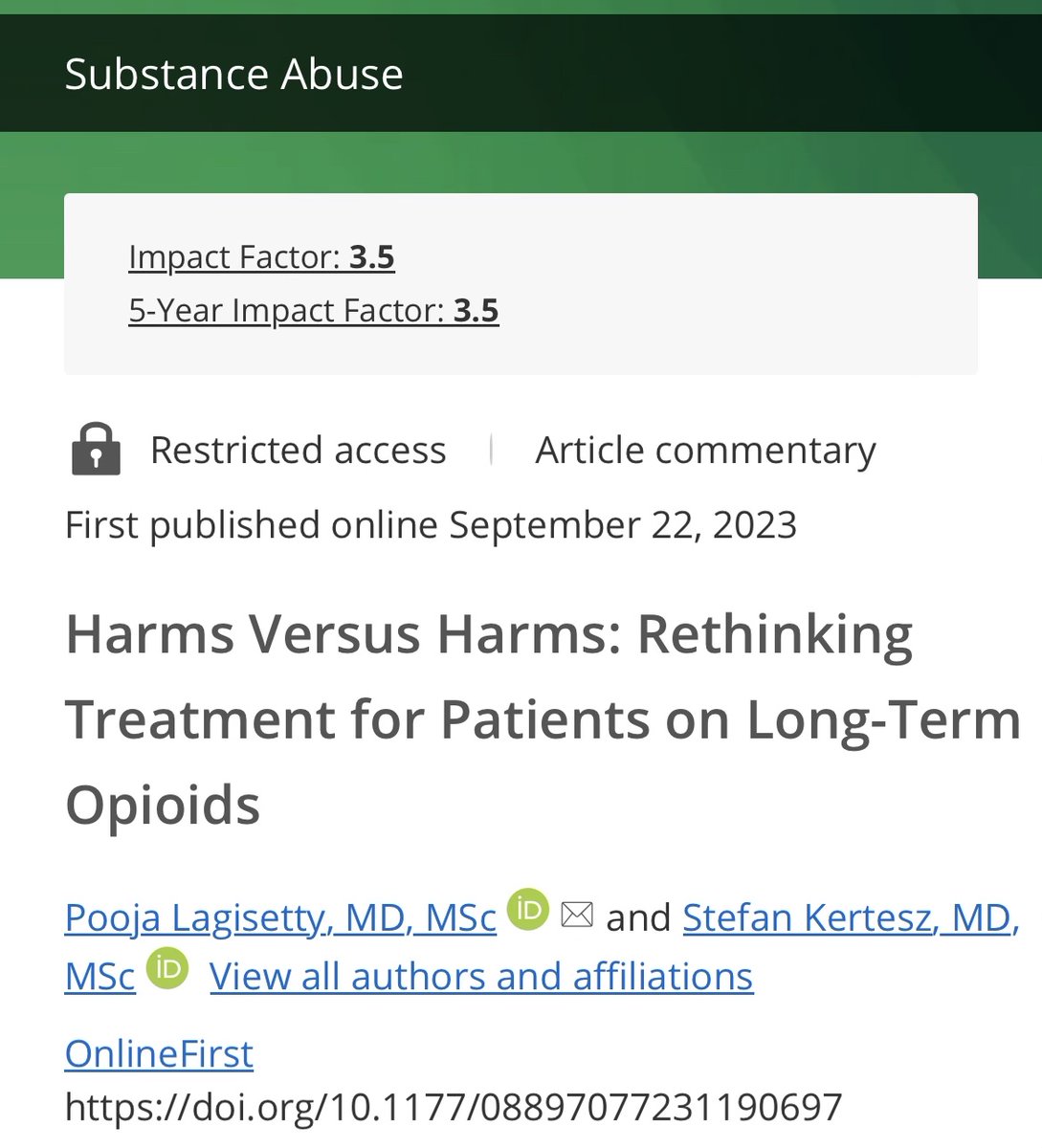1/Prescription opioid counts have fallen to levels last seen in 1992,reports @US_FDA Corinne Woods, PharmD for workshop at Duke Margolis today 

2/Prescription #opioid milligrams are at levels of early 2000s. That number is higher (relative to prescription count) according to @US_FDA Corinne Woods, PharmD at Duke-Margolis today - I think this difference reflects the patients with long term receipt. 

3/Total milligrams and total count of oral tablets in an “initial prescription” have declined, reports @US_FDA Corinne Woods, PharmD to today’s session for Duke-Margolis and FDA (2 images here) 



4/Opioid prescriptions to children have declined a good deal. Note this breaks our prescribers by specialty and that the x-axis is not the same in the two images (left vs right) reports @US_FDA Corinne Woods, PharmD at today’s session for Duke-Margolis 

5/When buprenorphine is started for treatment of Opioid Use Disorder, it is now increasingly a treatment started in primary care. And nurse practitioners are playing a rising role. Report from @US_FDA Corinne Woods, PharmD 

6/Summary points from @US_FDA - notes large ⬇️ in prescription, less of a decrease in MME, decline in overlap of benzodiazepine & opioids, and fewer patients starting (wait for final observations next!) 

7/In the additional points, @US_FDA speaker notes that high level data is limited, that ⬆️Rx prescribing played a role in opioid crisis and acknowledges unintended consequences from reductions - thank you Corinne Woods, PharmD /fin 

• • •
Missing some Tweet in this thread? You can try to
force a refresh

















